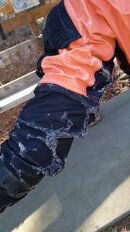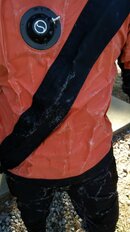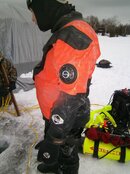As a diver (diver being certified for over 20 years) I know how important it is to be prepared for each and every dive. Now as a 20 year veteran in the dive community I have at times fell prey to being complacent during gear set up and even while planning dives. Now thankfully I'm am still around to talk about it. There have been times that I have drove for 4 hours to go diving, and once at my destination realized I didn't pack my exposure suit. There have been other times I have forgot weights or other fundamental items needed to dive safely. The point of this thread is that we should always be prepared. And though we should never take too many items with us on the actual dive, having extra gear (spare regulators, computers, gauges, mask, etc.) near by can save the day when things go bad. Also knowing when to call the dive can mean the difference between life and death.
Preparing for a dive starts as soon as you decide you are going to dive, whether it is a new location or a place you have made dives at 100 times. In the Public Safety world we call this scene size up, it begins the second we receive a call. This scene size up, your dive preparation may take just a few minutes up to a year in advanced. Since January 1st, 2015, our shop has ran over 6 trips and the next 2 are planned for the next 3 weeks. The next trip is to Cozumel (February 18th) and then immediately leaving to go Ice Diving in New York (March 6th). But even as a shop, some trips are planned a week, a month, or even a year in advanced. Our Cozumel trip was planned back in November of 2014, and the Ice Diving trip has been planned since March of 2014. Logistics plays a big role in planning trips and should play a big role in planning dives, no matter how small they are.
During the last 2 months I have been preparing some of my Ice Diving students that will be traveling to New York with me in 3 weeks, by taking them on some short cold water dives in our local area, and having them perform simple task such as Mask Removal & Replace. Skills that we learn way back in Open Water. However, as divers no matter what our certification level is, we tend to get complacent or we feel that we are experts, and this can hurt us as we advance in our training. A skill as simple as removing and replacing one's mask becomes much more difficult when the water temperature reaches a certain degree. What degree you might ask? COLD DEGREE, each person has their own tolerance to cold water.
This past weekend I took a fellow Instructor to a local quarry, who has mentored me for many years, and supervised him while he performed several basic skills, prior to taking him to New York to certify him in Ice Diving. Now during this dive, he was tasked with removing and replacing his mask, a skill he has done thousands of times for students, but never in extreme cold water. He made 2 attempts at this basic skill. The first time, he performed the skill flawlessly and was able to remove his mask, replace the mask, secure it under his hood, then clear it with one breath. After giving him a good job hand shake, I proceeded to perform the skill myself. I have always been the type that will never ask a student to perform anything that I'm not willing to do myself. After doing the skill for myself, the other Instructor decided to practice removing and replacing his mask again. This time upon replacing his mask, the skirt folded up on the right side of his mask and became lodged (due to it being a low profile mask with a very small skirt and no surface area to grab onto). He was unable to fix it while wearing 3 fingered mitts (his first time using 3 fingered mitts), and immediately signaled to go up. Now I immediately grabbed onto his shoulder straps and began a slow ascent with him.
After the dive we discussed the issue, and determined that no matter how experienced we are, not just as instructors but also as divers, any time we dive in an environment that we are not use to or we use gear we have never used before, we need to practice to be comfortable and proficient. Now this Instructor is a very comfortable diver, and as stated before, is a mentor of mine who I learn from each and every week, but this was his first time using 3 fingered mitts, and first time performing a skill in excessively cold water. All in all, he learned a valuable lesson, as did I, about being adequately prepared. Even though both of us have several thousand dives under our belts, it goes to show that water is very unforgiving and small problems can become major emergencies while under water. Preparing for a dive has never been made more real for him as it did on this particular dive.
After the dive, while we were disassembling our gear, we were discussing what happens after we finish his ice dives, and we discussed how to rewarm ourselves. The first thing we talked about was protecting ourselves from the environment. Meaning, get into a warm area before taking our exposure suits off. On this dive, immediately after exiting the water my dry suit froze over and I had to warm it up before I could unzip it and remove it. Last year, I did not have this problem and we were in -15 degrees air temperature, but had a heated shelter to change in. However, on this day we were in 30 degrees, but with no shelter, just goes to show the importance of being prepared. We chose not to set up a shelter because the temperature was 45 degrees warmer then where we are headed. Now this was remedied very simply by sitting in a heated vehicle for just a few minutes to thaw out the zipper. But no matter what dive you planned to make, being adequately prepared makes all the difference in the world.
Hope all divers (newly certified all the way up the scale to Course Directors) will take the time to prepare themselves for each and every dive they make. Safe diving to all.
Here are some pictures of my frozen over dry suit.




Preparing for a dive starts as soon as you decide you are going to dive, whether it is a new location or a place you have made dives at 100 times. In the Public Safety world we call this scene size up, it begins the second we receive a call. This scene size up, your dive preparation may take just a few minutes up to a year in advanced. Since January 1st, 2015, our shop has ran over 6 trips and the next 2 are planned for the next 3 weeks. The next trip is to Cozumel (February 18th) and then immediately leaving to go Ice Diving in New York (March 6th). But even as a shop, some trips are planned a week, a month, or even a year in advanced. Our Cozumel trip was planned back in November of 2014, and the Ice Diving trip has been planned since March of 2014. Logistics plays a big role in planning trips and should play a big role in planning dives, no matter how small they are.
During the last 2 months I have been preparing some of my Ice Diving students that will be traveling to New York with me in 3 weeks, by taking them on some short cold water dives in our local area, and having them perform simple task such as Mask Removal & Replace. Skills that we learn way back in Open Water. However, as divers no matter what our certification level is, we tend to get complacent or we feel that we are experts, and this can hurt us as we advance in our training. A skill as simple as removing and replacing one's mask becomes much more difficult when the water temperature reaches a certain degree. What degree you might ask? COLD DEGREE, each person has their own tolerance to cold water.
This past weekend I took a fellow Instructor to a local quarry, who has mentored me for many years, and supervised him while he performed several basic skills, prior to taking him to New York to certify him in Ice Diving. Now during this dive, he was tasked with removing and replacing his mask, a skill he has done thousands of times for students, but never in extreme cold water. He made 2 attempts at this basic skill. The first time, he performed the skill flawlessly and was able to remove his mask, replace the mask, secure it under his hood, then clear it with one breath. After giving him a good job hand shake, I proceeded to perform the skill myself. I have always been the type that will never ask a student to perform anything that I'm not willing to do myself. After doing the skill for myself, the other Instructor decided to practice removing and replacing his mask again. This time upon replacing his mask, the skirt folded up on the right side of his mask and became lodged (due to it being a low profile mask with a very small skirt and no surface area to grab onto). He was unable to fix it while wearing 3 fingered mitts (his first time using 3 fingered mitts), and immediately signaled to go up. Now I immediately grabbed onto his shoulder straps and began a slow ascent with him.
After the dive we discussed the issue, and determined that no matter how experienced we are, not just as instructors but also as divers, any time we dive in an environment that we are not use to or we use gear we have never used before, we need to practice to be comfortable and proficient. Now this Instructor is a very comfortable diver, and as stated before, is a mentor of mine who I learn from each and every week, but this was his first time using 3 fingered mitts, and first time performing a skill in excessively cold water. All in all, he learned a valuable lesson, as did I, about being adequately prepared. Even though both of us have several thousand dives under our belts, it goes to show that water is very unforgiving and small problems can become major emergencies while under water. Preparing for a dive has never been made more real for him as it did on this particular dive.
After the dive, while we were disassembling our gear, we were discussing what happens after we finish his ice dives, and we discussed how to rewarm ourselves. The first thing we talked about was protecting ourselves from the environment. Meaning, get into a warm area before taking our exposure suits off. On this dive, immediately after exiting the water my dry suit froze over and I had to warm it up before I could unzip it and remove it. Last year, I did not have this problem and we were in -15 degrees air temperature, but had a heated shelter to change in. However, on this day we were in 30 degrees, but with no shelter, just goes to show the importance of being prepared. We chose not to set up a shelter because the temperature was 45 degrees warmer then where we are headed. Now this was remedied very simply by sitting in a heated vehicle for just a few minutes to thaw out the zipper. But no matter what dive you planned to make, being adequately prepared makes all the difference in the world.
Hope all divers (newly certified all the way up the scale to Course Directors) will take the time to prepare themselves for each and every dive they make. Safe diving to all.
Here are some pictures of my frozen over dry suit.








